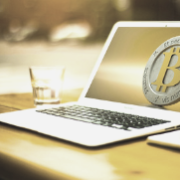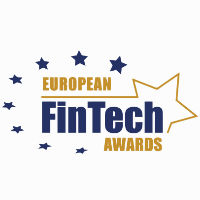Big tech vs Fintech vs Banks – in international payments
| 09-07-2019 | by Patrick Kunz |
 This title makes it sounds like it’s a fight. To be honest: it is! The market for international payments is huge and its lucrative. In a McKinsey report the 2018 market size for payment revenues was close to 2 Billion. Not strange everybody wants a slice of that.
This title makes it sounds like it’s a fight. To be honest: it is! The market for international payments is huge and its lucrative. In a McKinsey report the 2018 market size for payment revenues was close to 2 Billion. Not strange everybody wants a slice of that.
Fintech & Banks
Traditionally the market for international payments was dominated by banks. Recent years and technological advancements has shown that banks are slow to adapt to new technology and market requirements. In some cases it still takes days to transfer money from Europe to Asia, while an email, FB message or picture can be send in seconds. Fintech has tried to fill the gap with innovative tech solutions that solve these problems. Often these companies are lean and mean and adapt to market changes much quicker than the big stable banks. They provide cloud solutions, link to every bank possible and make you more bank independent. Lately we have seen consolidation in the fintech market where players are merging, growing or being taken over by banks. Some banks have started their own fintech. But often fintech only solved a part of the problem and is build on the existing (bank) infrastructure. Banks are also working on innovation: instant payments, swift GPI and PSD2 api’s are helping the customer paying faster and easier. These initiatives are great but have taken years to be implemented.
Bigtech
Then there is a third group of players: big tech. These are the google, facebook and alixpress of our world. These are traditionally IT companies who have a big client base but these companies where not involved in payments (yet). Their edge is size, market access and fast adoption. What happens if they enter the market for payments? Are they likely to win? Look at Alipay, massively successful in China but growing immensely outside Asia to. Why ? because it is easy to use, innovative, low cost and probably most importantly connected with an existing service of the bigtech (alixpress – shopping). The company provides the full customer journey: shopping for product and paying the goods in the most easy way without moving away from the website. Not only via desktop but also via mobile. On the go they make it possible to pay by scanning a QR code, in a grocery store or in a cab. Who needs cash OR a debit card, you only need your mobile phone and an app! Why was this successful? Because the existing customer base was already there they just vertically integrated into the customer journey; easier for the customer and therefore extra revenue for Ali. But also more power for Ali.
Stablecoin Libra
Looking at Facebook and their Stablecoin Libra. Digital currency, unregulated, not based on the traditional banking/payment infrastructure. There are big and significant differences with Bitcoin but the idea is the same: sending and receiving money worldwide in an instant as digital currency. There should be no speculation on the Libra-Rate as the rate of exchange is based on a basket of currencies (EUR, USD, JPY etc). Similar to the old tech Special Drawing Rights from the IMF. So what makes libra different to bitcoin and the other coins? I am not going into the technical differences as that is beyond my scope and would bore you. The main difference is the easy of adoption. New to bitcoin and want to use it: you have to open a wallet, trading account and learn have to transfer the BTC to somebody and the receivers also needs a wallet; a barrier for most. Using Libra will be much easier as it is just an extension of the services of Facebook. Libra potentially has 2,4 billion users (the number of facebook accounts). This is a big competitive advantage. Compared with smart marketing (facebook knows that) and combining it with existing products there is a big potential. Sending money to your facebook friends in Australia or Japan? No problem: in-an-instant via Libra. Besides facebook it is also supported by other big players like Visa, Spotify, Paypall, Mastercard, Vodafone. Is there a future without Libra ? And how many facebook users are there without an bank account. There are 2,4 billion facebook users and 1,7 billion people without a bank account in this world. The reach is already huge so there is low barrier for adoption.
The Battle
Does this mean bigtech will be ‘winning’? In my opinion hard to say. That battle is being fought the coming years. Don’t forgot the power and influence of regulator and governments. Digital payments are unregulated and unknown and could influence the power of governments and the whole banking infrastructure of money regulation, central bank money creation and some even fear de-stabilization of the monetary system as a whole. Regulators could stop/limit the quick steps forward by bigtech.
The coming years will be exiting to see the technological advancements in the battle for payment revenue. The winner will be the consumer; easy of paying will increase further and more importantly the speed will increase. Paying how we want and within a blink of an eye, and this worldwide, will be the new standard within several years.

Treasury, Finance & Risk Consultant/ Owner Pecunia Treasury & Finance BV









